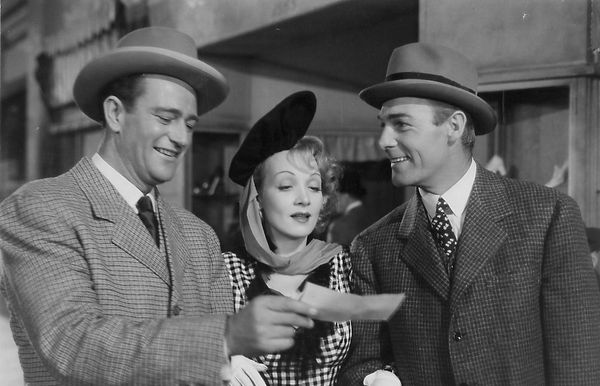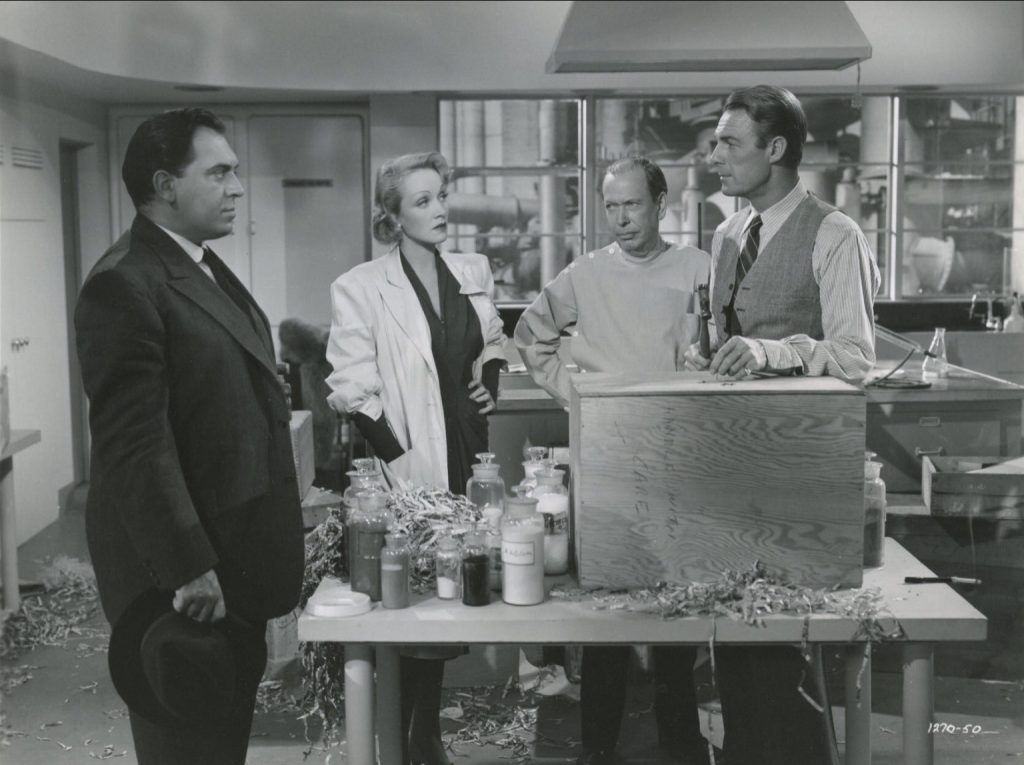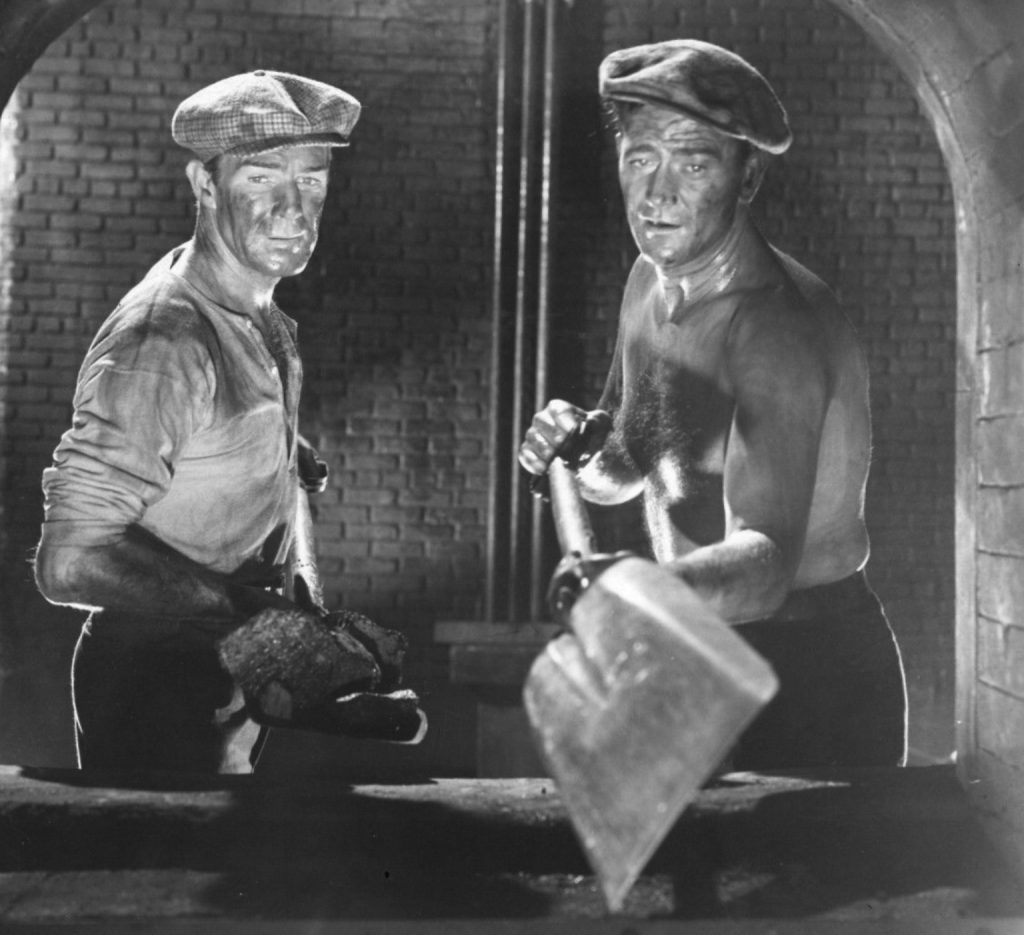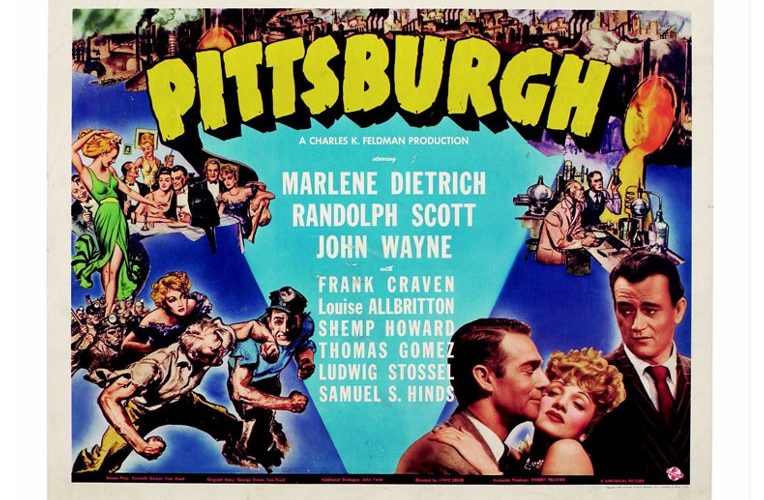Pittsburgh (1942).
A large focus for Hollywood during the early forties was of course the war. The US government was seriously curtailing production of many industries in order to focus on the war effort. Hollywood, luckily for those who worked there, and for us eight decades later, was not affected, but that doesn’t mean they didn’t play a part in the fight against the Nazis.
If the US and Germany had one thing in common at this time, it was the understanding that the best way to propagandise people was to do so without them knowing it. Make it entertaining and the populace will start to believe whatever you want them to. This might seem controversial, however it was clearly stated as policy by Elmer Davis, the Director of the Office of War Information:
‘The easiest way to inject a propaganda idea into most people’s minds is to let it go through the medium of an entertainment picture when they do not realise they are being propagandised.’
One example of this is the 1942 film Pittsburgh starring Marlene Dietrich, Randolph Scott and John Wayne, which has been recently released as part of the BFI’s Marlene Dietrich at Universal 1940-1942 collection.

It tells the story of two coalmining friends (John Wayne as Pittsburgh and Randolph Scott as Cash) who have big dreams but are too attached to the carefree life to do anything about it. That is until they meet Josie “Hunky” Winters (Marlene Dietrich). Hunky – named after a slang term for manual workers immigrating from Eastern Europe – is a coal miner’s daughter who also has big dreams and is willing to sacrifice anything to get it done. She sees the light in their eyes and adds the spark which turns this light into a full-blown flame. We then follow the trio up the ladder of success and witnesses the change in personality this success can bring.
Although Pittsburgh is part of a collection dedicated to Marlene Dietrich and her name appears first in the credits, the star of Pittsburgh is John Wayne who plays the eponymous title character. He’s brash and selfish, brutish and rude, and it’s one of his best roles.
As success embraces him, Pittsburgh changes from a working man who will fight for his comrades to a selfish and ultimately lonely man who loses more than he gains. Neither Cash nor Hunky stray from their dream nor do they forget who they are. The trio splits after Cash promises their workers that he’ll look after them but Pittsburgh reneges on that promise.

The lead performances are fantastic especially Wayne who isn’t afraid to allow himself to be portrayed as one who lets success go to his head. Yet we still know that he’s good inside and just needs to find that light that he had when he was poor. Wayne was often characterised as a single performance actor. He himself claimed he only ever played one character – himself; however performances like this, whilst undoubtedly Wayne, show us a glimpse of how great an actor he was.
Scott is perfect as the reliable Cash who was always Pittsburgh’s wingman and willing to accept his pal’s antics even though he was often the victim. There’s not a great arc for him to play, he just has to remain solid throughout, but he does so without his character ever becoming stale or falling too far under Wayne’s shadow.
Finally, there’s Dietrich, who is probably the most disappointing of the three, not because she’s not particularly good, but because she has little to do. It starts well but she soon becomes little more than the third party of a love triangle, without contributing too much to it. In fact, through much of the second half, she is hardly visible. This is surprising considering she was perhaps the biggest star at the time and certainly deserved more.

Pittsburgh is undoubtedly a propaganda film, thanking the working man for their efforts in a time of war, but that doesn’t stop it being very entertaining. This is of course the reason it was made. Cash and Pittsburgh’s company specialises in steel production, a material that was vital in the war effort, and the film is made to illustrate that everyone – management and workers – were all in it together. When they work together, they experience success, but they must all be contributing for the right reasons. Pittsburgh’s failure is that, even when he tries to go good, he still fails. Why? Because he thinks he can make people respect him instead of earning it.
Pittsburgh is no masterpiece by any stretch of the imagination but it’s still entertaining throughout. The chemistry between the leads is great and the story is compelling enough to keep you interested throughout. And ultimately, the moral of the story rings true and clear. Yes it does indulge in a little moralising, but not enough to get in the way of the entertainment on screen.
After the war there was a backlash against films like this because, in some respects, it’s critical of capitalism and pushes what may be considered a socialist agenda. Films that were written specifically to promote solidarity between the owners and the workers in war time were looked upon suspiciously in the post-war period, when communism became public enemy number one. Such sentiment won’t have the same relevance in 2021, but for students of cinema history, this aspect of Pittsburgh adds another level of interest beyond its 90 minute runtime.
Film ‘89 Verdict – 7/10
Pittsburgh is available on Blu-Ray as part of the BFI’s Marlene Dietrich at Universal Collection.

